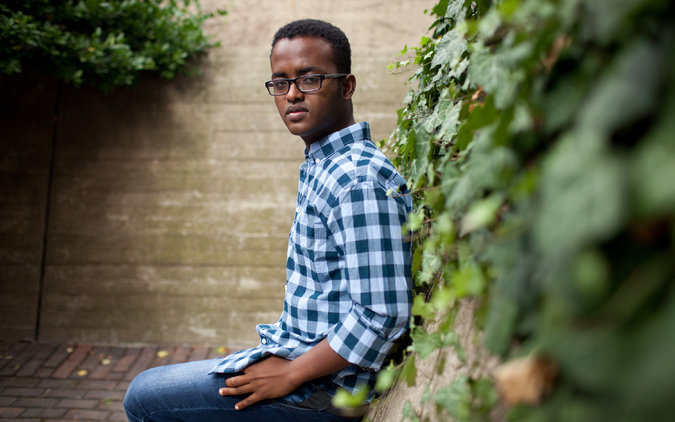“Talent is universal, but opportunity is not” . Yet, Abdismad Adan, a young boy from Africa has managed to succeed against the odds and become a student at Harvard.
When I was a child, school was my favorite thing in the world. I excelled at it, and I looked forward to the logic puzzles, multiplication tables, and story times. However, the older I got, the duller school seemed to become. Story time was replaced with textbook work, and backpacks got heavier with every passing year. School lost its shine, and, exhausted by the whirlwind of clubs, sports, work, personal life, and academic load that I take on, I began to regularly dread the start of a new day.
It’s easy to lose perspective once you become accustomed to it. We often tend to take what we possess for granted, thinking that it is owed to us. We forget that what we have is more often than not actually a big deal; we forget to be grateful.
The Story of Abdisamad Adan
Fortunately, our world is full of inspiring people who can remind us of the important things in life. Every so often, we get word of stories that rejuvenate our ability to see the big picture.For example, take Abdisamad Adan, from a country in Africa that doesn’t officially exist. Abdisamad’s story appeared in September in a New York Times op-ed column, written by Nicholas Kristof. It describes his incredible journey from his home in Somaliland, where his grandmother disapproved of his pursuit of higher education and some of his 18 siblings are illiterate, to the esteemed university of Harvard.
Somaliland is a breakaway republic, and it is one of many regions in the world where children don’t have the same access to indoor plumbing as countries like the United States, let alone proper access to a quality education. Before arriving in America, Abdisamad spent an average of two hours each day carrying water to his home; his grandmother disapproved of his pursuit of higher education because in Somaliland, the likelihood of him making use of that education was very little, and it took time away from supporting his family. Additionally, the cost of primary education in Somaliland is $1 a month, while the cost of a secondary education is $40 a month.
But Abdisamad is an unlikely person, with an unlikely story. Even without someone to push him to excel academically, Abdisamad scored the second highest grade on the national eighth grade exams. His talents, combined with a good deal of luck, landed Abdisamad in the Abaarso School of Science and Technology, where he started ninth grade. Though he struggled at first, Abdisamad won a scholarship to study at the Masters School in New York after three years of hard work. He blossomed at Masters, and applied and was accepted to Harvard.
Abdisamad’s story is as unlikely as it is illuminating. Reading the article in the New York Times reveals just how powerful education and opportunity are. There is no doubt that:
Talent is universal, but opportunity is not.
Abaarso School, founded by the American business tycoon Jonathan Starr, transformed Abdisamad’s entire life. Had it not been for Starr’s lenient tuition and high quality academic curriculum, Abdisamad could have ended up as one of the many migrants fighting tooth and nail to make it to Europe. At best, he likely would have squandered his talent working a job requiring no skill, barely surviving and making a living.
The age-old adage that “talent is universal, but opportunity is not” certainly rings true here; Abdisamad is undoubtedly only one of millions of youth who must fight against the odds to pull themselves out of the cycle. He is one of the lucky few that made it out, that beat the odds and made a new life for himself. Most of his counterparts are not as lucky.
It is easy to lose perspective when we live in an area with abundant resources and a stable social and governmental system. Many of us are fortunate to live in a place where “Back to School” joins winter, spring, fall, and summer as a season in the year, where we have the ability to feel exhausted by the amount of work that is given to us by our teachers.
Those of us touched by Abdisamad’s story must recognize our responsibility to those millions that don’t get to be featured in a prominent newspaper; we must realize that we have an obligation to reach out to those who have become victims of their circumstances. The world is also losing out on an invaluable source of creativity and innovation, and they are being entrenched an endless cycle of inopportunity, radicalism, violence, and warfare. Every child deserves to have an education and the opportunity to transform their lives, and we must find a way to provide them with the tools they need to do so.













